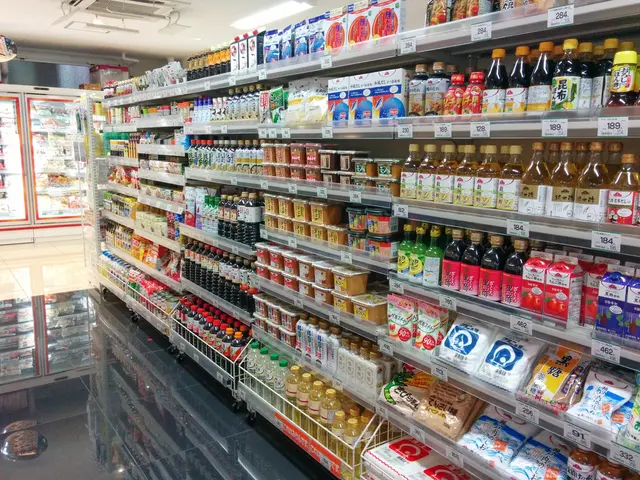Customs dispute resolution proposal from Switzerland, as Trump imposes potential pharmaceutical tariffs as a response - Customs dispute negotiation sought by Switzerland - Trump hints at pharmaceutical tariffs retaliation
The Alpine nation, Switzerland, is bracing for high tariffs imposed by the US starting from Thursday, in the ongoing trade conflict. The tariffs, initially announced at 39%, have increased from the 31% proposed earlier in April, and could potentially reach "250 percent" for pharmaceutical products, as per President Trump's statement.
Overall, exports to the US accounted for 18.6 percent of Switzerland's total exports in 2024. If implemented, these tariffs would hit Switzerland hard, as 60 percent of the goods exported to the US in 2024 were pharmaceutical products.
The EU had its tariff introduction postponed by a week, but Switzerland was not part of this delay and will face the new tariffs as scheduled. The Swiss government is seeking to find a solution to the trade dispute with the US to avoid these potential negative impacts.
The Swiss government has made an offer to address the concerns of the US, but no details of this offer have been disclosed. The offer centers on tariff elimination on imports from the US, commitment to increased U.S. investment, and open negotiations seeking a mutually acceptable resolution without escalating retaliatory tariffs.
Switzerland's detailed offer, presented in early August 2025, highlighted that the trade surplus was not due to unfair trade practices. The country had already unilaterally removed all tariffs on industrial goods as of January 2024, allowing over 99% of U.S. goods tariff-free access to Swiss markets.
Before the 39% tariff on Swiss goods was set to take effect on August 7, Switzerland pledged to continue trade negotiations with the U.S. and planned to "present a more attractive offer" to avert the tariffs. However, further details from August 2025 show that Switzerland rejected escalating retaliatory tariffs and instead focused on relief strategies for Swiss exporters and maintaining dialogue with Washington to resolve the dispute.
A proposal by Swiss negotiators to increase investments in the U.S. by $150 billion was reportedly overlooked by U.S. officials, and a Swiss suggestion to reduce tariffs to 10% was dismissed by the Trump administration. Despite the landlocked nature of Switzerland, the government even considered importing U.S. liquefied natural gas (LNG) as a goodwill gesture.
While some Swiss political figures called for countermeasures like export duties on precious metals, the government refrained from such steps, partly because gold itself was exempt from these tariffs, allowing the refining sector to keep operating with less disruption.
The US trade representative, Jamieson Greer, has warned that no changes to the tariffs are expected in the coming days. US President Trump announced further potential tariffs on pharmaceutical products from around the world, which could be imposed "within the coming week."
Switzerland exports not only pharmaceutical products but also watches, machinery, coffee capsules, cheese, and chocolate to the United States. The Swiss government is determined to continue negotiations for a trade agreement with the US, even beyond the implementation of the tariffs on Thursday.
Karin Keller-Sutter, a Swiss official, is seeking to find a solution to the trade dispute with the US to avoid these potential negative impacts. The Swiss government believes that the tariffs could have significant negative impacts on the country's economy. However, the future of the trade relations between Switzerland and the US remains uncertain.
References:
[1] Swissinfo.ch. (2025). Switzerland's detailed offer to Trump on pharmaceutical tariffs. [online] Available at: https://www.swissinfo.ch/eng/switzerland-s-detailed-offer-to-trump-on-pharmaceutical-tariffs/46821704
[2] Swissinfo.ch. (2025). Switzerland rejects escalating retaliatory tariffs in US trade dispute. [online] Available at: https://www.swissinfo.ch/eng/switzerland-rejects-escalating-retaliatory-tariffs-in-us-trade-dispute/46823626
- The Swiss government's offer, while not fully disclosed, includes proposals for tariff elimination on imports from the US, increased U.S. investment, and open negotiations to find a mutually acceptable resolution, all aiming to avoid escalating retaliatory tariffs.
- The ongoing trade dispute between Switzerland and the US, amidst calls for a trade agreement, has implications stretching far beyond just pharmaceuticals, as Switzerland exports a diverse range of goods, such as watches, machinery, coffee capsules, cheese, and chocolate, to the US.





